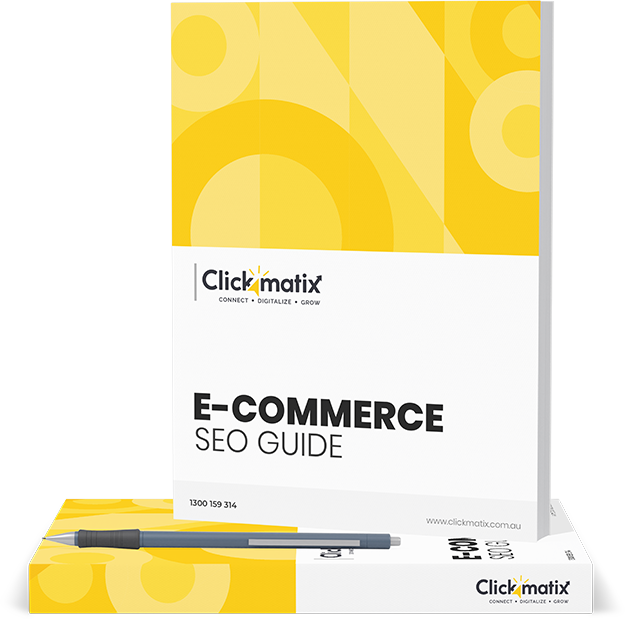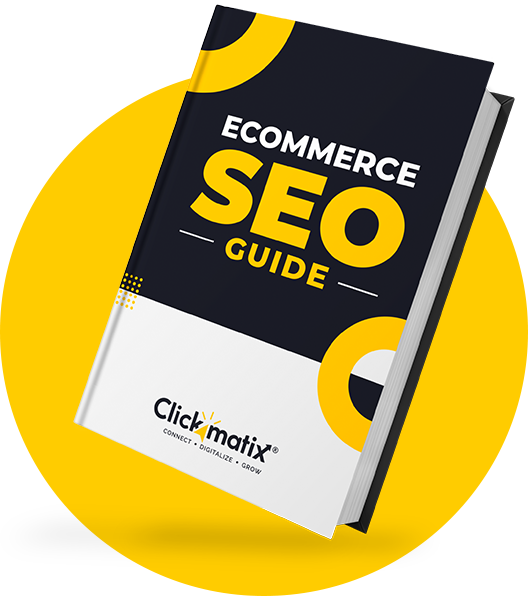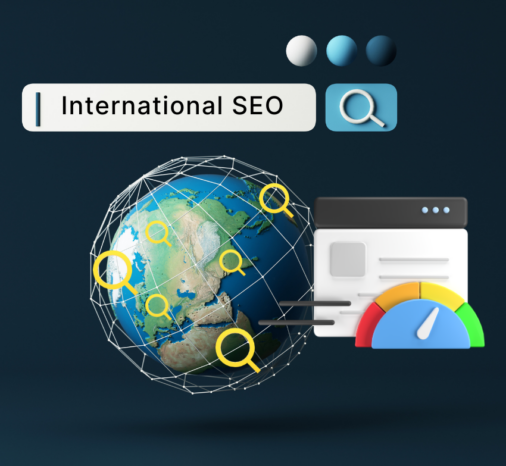No matter how amazing your product or service is, there's no way it can reach thousands of consumers without a proper plan for marketing. The only way to make sure that your business gets maximum eyeballs is to hire an SEO agency so you can dominate the search engine rankings
Place your brand on the top of Google’s search engine results pages (SERPs) through easy-to-see ads. As an extremely effective way for your business to drive relevant, qualified traffic through to your website, this channel puts you in control of your marketing spend and targeting from start to finish.
With ecommerce SEO, you can capture the attention of your target audience, drive relevant traffic to your store, and earn more online sales. Increase your ecommerce website ranking on major search engines like Google and Bing by investing in ecommerce SEO.
Establish your brand, limit business expenses, track campaign progress, build customer relationships, and increase audience reach with social media marketing. Clickmatix will help you drive and increase traffic to your website and ensure your marketing efforts are recognized by various social media channels.
Clickmatix's digital marketing services are not limited to SEO, Paid Marketing, Ecommerce SEO, and Social Media Marketing. We also help our clients with Conversion Rate Optimization (CRO), Online reputation management (ORM), website designing, and creating service/product-oriented landing pages.
Partnering with a digital marketing agency having wide industry expertise and knowledge has its own perks. Clickmatix takes pride in working with some of the established as well as emerging industries in the world. We don’t limit our service to a specific industry or particular niche.
Leverage the latest industry trends in digital marketing and get insights, strategy overviews, and tips from our experts via blogs and eBooks to grow your business. Check case studies and testimonials on how our result-driven marketing strategies helped our clients bring quantifiable results.
Clickmatix is always looking to build meaningful relationships with people - clients or candidates. If you want to partner with or work for a digital agency that delivers quantifiable results and owes campaign success to team members, Clickmatix is just the place you are seeking for!
Contents
Table of Contents
Imagine yourself as an ambitious entrepreneur, wandering into the e-commerce forest. You have an unwavering passion for your unique products and a desire to showcase them to the masses. But within this forest with wild competition, you grapple with a confusing question – How do you stand out and attract eager customers?
Fear not! This blog unveils the ultimate beginner’s guide to Ecommerce SEO. With each word, you’ll gain the knowledge and tools needed to conquer the digital landscape, transforming your online store into a flourishing empire. Get ready to witness your dreams materialize into sales, eventually helping you reach new peaks.
SEO for E-commerce is a powerful blend of strategy and artistry aimed at optimizing your website to soar high in search engine rankings. It’s like sprinkling stardust on your online presence. You begin by searching for keywords and selecting the perfect ones that resonate with your target audience. These keywords become the magic spell that connects you with potential customers, ensuring your store is visible when they seek what you offer.
But this doesn’t end there. You realize that the user experience is crucial, so you fine-tune your website’s structure and navigation to provide a seamless journey for your visitors. You build relationships with other reputable websites, creating a network of trust through valuable backlinks. And, of course, you embrace the power of social media, engaging with your customers and sharing compelling content that sparks genuine connections.
As you immerse yourself in the world of SEO for e-commerce, something magical begins. Your online store starts to shine brightly in the universe of search engines. Customers can now find you effortlessly, drawn by the allure of your optimized website and the genuine passion behind your brand.
The journey of e-commerce SEO is an ongoing adventure where you continuously adapt and refine your strategies. But armed with knowledge, creativity, and a sprinkle of that entrepreneurial spirit, you set yourself on a path to flourishing online, transforming your dreams into tangible reality.
When optimizing your e-commerce website for search engines, choosing the right keywords can truly make a difference. Keyword research acts as the bedrock for your e-commerce SEO strategy. It involves finding those magical search terms and phrases that potential customers use when hunting for products or services like yours. By smartly targeting these keywords, you can boost your website’s visibility, attract the right audience, and witness a surge in your conversion rates.
To embark on effective keyword research, brainstorm a list of keywords that truly resonate with your e-commerce business. Step into the shoes of your target audience and ponder over the words they would employ while seeking products similar to yours. To expand your keyword list and gain deeper insights into search volumes, competition levels, and related keywords, you can rely on handy online tools like Google Keyword Planner, SEMrush, or Ahrefs.
Remember, it’s crucial to strike the perfect balance between search volume and competition. While highly competitive keywords might attract substantial traffic, ranking for them can be an uphill battle. Conversely, targeting long-tail keywords can bring higher conversion rates and drive quality traffic to your e-commerce website. Ecommerce SEO Agency plays a crucial role in helping online businesses thrive in the competitive digital landscape, and one of their essential tasks is keyword research. Keyword research is a foundational aspect of any successful SEO strategy and is especially critical for e-commerce websites.
Once you have refined your keyword list, it’s time to sprinkle them strategically throughout your website’s content. From product descriptions and meta tags to headings and URLs, find creative ways to seamlessly incorporate these keywords. However, tread carefully and avoid excessive keyword stuffing, which can negatively impact your rankings.
So invest your time and effort into comprehensive keyword research, and be prepared to witness your e-commerce venture bloom in the fiercely competitive digital landscape. Always remember keywords hold the key to unlocking your online potential!
When it comes to e-commerce, the way your website is structured can make or break your Ecommerce SEO strategy. A well-designed site architecture improves user experience and boosts your visibility in search engine results. Site architecture refers to your website’s organization, including its navigation and structure. For e-commerce websites, having a logical and intuitive site architecture is crucial. It ensures that search engines and visitors can easily navigate your site, find what they’re looking for, and have a seamless shopping experience.
To create an effective e-commerce store architecture, organize your categories, subcategories, and product pages in a way that makes sense to your customers. This improves user experience and increases the chances of turning visitors into customers.
Don’t forget about internal linking! By strategically linking related pages within your website, you guide users to discover more content and help search engines understand the structure and relevance of your site. It’s like building a roadmap that connects different parts of your online store.
In today’s mobile-driven world, optimizing your e-commerce store architecture for mobile devices is essential. Ensure your website is responsive and provides a user-friendly experience across different screen sizes. Mobile-friendly navigation is key to keeping visitors engaged and satisfied. By creating a user-friendly structure, conducting competitor analysis, optimizing internal linking, and embracing mobile responsiveness, you create a strong foundation for your online business.
By optimizing various on-page elements, you can truly enhance your online presence. On-page SEO is all about making tweaks directly on your website to improve its search engine rankings. It involves referring elements like meta tags, URLs, headings, content, and internal rankings. It involves refining elements like love and attention. You send powerful signals to search engines, helping them understand how relevant and high-quality your web pages are.
When it comes to on-page SEO for e-commerce, keyword research becomes your secret weapon. It’s like discovering hidden treasures that will guide search engine crawlers right to your virtual doorstep. By strategically sprinkling relevant keywords throughout your website’s content, meta tags, and URLs, you increase your chances of being discovered by your target audience.
Crafting irresistible product descriptions is another vital aspect of on-page optimization. When you provide unique, well—written descriptions, not only do you help potential customers make informed decisions, but you also offer search engines a delicious feast of valuable content to index and rank.
Don’t forget the power of headings and subheadings. By optimizing them with relevant keywords, you not only make it easier for visitors to navigate your website but also help search engines understand the structure and relevance of your content. It’s like putting up signposts that guide everyone to the right destination.
Last but not least, by strategically connecting related pages within your website, you create a smooth path for users to explore more of your content. And guess what? Search engines love it too! Internal linking helps them discover your content more effectively, making your website more visible in search results.
Understanding the importance of internal linking is like discovering a secret treasure chest for optimizing your website and achieving SEO greatness. By strategically connecting pages within your online store, you can create a seamless user experience, boost your visibility in search engine results, and ultimately drive more conversions. Internal linking is all about creating bridges between different pages on your website. These hyperlinks serve as helpful signposts that guide your visitors and search engines through the nooks and crannies of your online store.
One of the greatest benefits of internal linking is enhancing user experience. By strategically placing relevant links within your content, you’re like a friendly guide, showing your customers the way to related products, categories, or informative pages. This keeps them engaged, encourages exploration, and increases their chances of purchasing.
From an SEO perspective, internal linking enhances user experience. By strategically placing relevant links within your content, you’re like a friendly guide, showing your customers the way to related products, categories, or informative pages. This keeps them engaged, encourages exploration, and increases their chances of purchasing. Internal linking can also assist in optimizing your keywords. By linking relevant anchor text to specific pages, you provide search engines with additional clues about the content of those pages. It’s like giving them a special VIP pass to climb higher in the search engine rankings.
As you embark on your internal linking journey, remember to keep it natural and intuitive. Avoid going overboard with excessive linking, as it can confuse your visitors and water down the impact of each link. Focus on creating meaningful connections between pages that make sense and truly complement each other.
Technical SEO is all about optimizing the behind-the-scenes elements of your website to make it search-engine friendly and user-friendly. It’s like giving your digital foundation a solid upgrade. From website speed to mobile-friendliness, site structure to URL structure, various technical aspects deserve your attention.
Let’s start with website speed. Slow-loading websites are like traffic jams that frustrate users and discourage them from exploring further. By optimizing images, compressing files, and implementing caching techniques, you create a smooth and delightful browsing experience that keeps visitors engaged. Mobile friendliness is another essential factor in today’s mobile-centric world. With more people accessing the web through their smartphones, ensuring your e-commerce website looks and functions seamlessly on mobile devices is crucial. It’s like rolling out the red carpet for your mobile visitors and showing them you care.
A well-organized site structure is like a well-planned store layout that helps visitors find what they need effortlessly. Creating a clear hierarchy and using clean, descriptive URLs make it easier for search engines to understand and index your pages. Regular monitoring and optimization of technical SEO elements, such as XML sitemaps, robots.txt files, canonical tags, and structured data, are like fine-tuning your digital engine. They ensure search engines can crawl and understand your website’s content, improving your chances of appearing in relevant search results.
Content marketing is all about crafting meaningful and engaging content that speaks to your target audience. It’s like starting a conversation and building a connection based on understanding their needs, desires, and challenges. By providing valuable content, you establish your brand as a trusted force of knowledge and expertise in your industry.
Content marketing allows you to naturally incorporate relevant keywords into your content, making it easier for search engines to discover and rank your website. By conducting thorough product keyword research and seamlessly integrating those keywords into your blog posts, product descriptions, and other content, you can attract organic traffic and reach the right people.
Content marketing also opens doors for building meaningful relationships and acquiring valuable external links. When you create high-quality content that others find valuable, they are likely to share it and link back to your website. Collaborating with industry influencers, reaching out to experts, and guest blogging can amplify your reach and enhance your domain authority.
Additionally, e-commerce content marketing creates opportunities to engage with your audience on social media, email newsletters, and online communities. By consistently delivering valuable content, you build trust, foster loyalty, and inspire your customers to share and revisit your e-commerce website.
Link building is all about building bridges that connect your website with others in the online landscape. These bridges serve as trust signals to search engines, indicating that your website is worth exploring and ranking higher in search results. But not all links are created equally; quality and relevance are the cornerstones of effective link building services.
One powerful approach to link-building is nurturing relationships with industry influencers and authoritative websites. By engaging with them, providing value, and building genuine connections, you can earn their attention and secure valuable backlinks. These endorsements from influential sources drive targeted traffic and boost your website’s credibility.
Creating compelling and shareable content is another effective strategy for earning backlinks. When you produce content that captivates and educates your target audience, other websites naturally gravitate towards referencing and linking to it. Great content always attracts links like a magnet, be it thought-provoking blog posts, visually appealing infographics, or engaging videos.
Never underestimate the power of social media and online communities in your link-building efforts. By actively participating in relevant discussions, sharing your expertise, and providing valuable insights, you can build relationships and earn links from community members and industry peers.
A sitemap acts like a roadmap for search engine crawlers, guiding them through the different corners of your website. It’s like handing them a treasure map, highlighting the valuable content you want them to find. By including a sitemap, you make it easier for search engines to navigate your site, index your pages accurately, and present them in relevant search results.
When it comes to e-commerce SEO, a comprehensive sitemap is your secret weapon for visibility. It ensures that all your product pages, categories, and important content are included in search engine indexes. Think of it as your website’s directory that search engines refer to when someone searches for products or categories you offer.
A sitemap also enhances the user experience. Organizing your website’s pages logically within the sitemap creates a user-friendly browsing experience that helps visitors find what they’re looking for. It’s like providing a clear roadmap, leading them to the products and information they need. Adding a sitemap to your e-commerce website is as simple as creating a signpost. There are various tools and plugins available to help you generate a sitemap, and you can easily submit it to search engines. Regularly updating and maintaining your sitemap ensures that search engines stay in the loop about any changes on your website.
Schema markup, also known as structured data, is like a secret code that adds extra meaning to your content. When applied to your product pages, it tells search engines important details such as product name, price, availability, and reviews.
The benefits of adding schema markup to your e-commerce SEO strategy are truly magical. First and foremost, it enhances your appearance in search results by creating rich snippets. These snippets provide users with additional information upfront, like star ratings and pricing, making your products stand out and enticing more clicks.
Not only do schema markups make your product pages more attractive in search results, but they also help search engines better understand your content. By providing structured information, you make it easier for search engines to interpret and present your products to potential customers. Additionally, schema markup can give products a special spotlight in specialized search results, like product carousels or comparison tables. This increased visibility can drive targeted traffic directly to your product pages, increasing the likelihood of conversions.
Implementing schema markups may sound technical, but fear not! User-friendly tools and plugins are available to generate and implement structured data, making it accessible to everyone.
This ultimate beginner’s guide for e-commerce SEO has been a game-changer, providing readers with valuable insights to kickstart their online journey. With newfound knowledge, increased visibility, and improved user experience, success is within their grasp. Contact us to start optimizing your online store today and watch it thrive!

With this Ecommerce SEO Guide, you'll be able to:



With this Ecommerce SEO Guide, you'll be able to:


